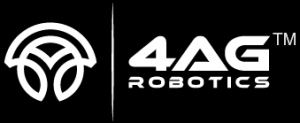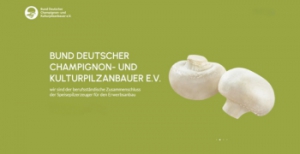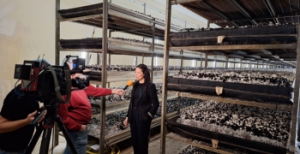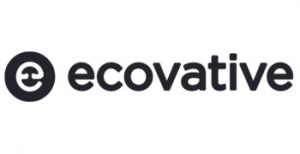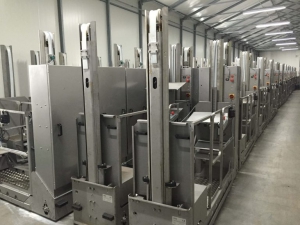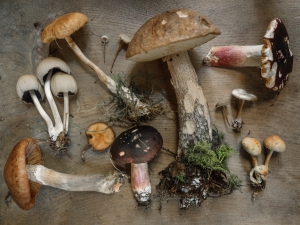Yesterday we were on dutch television! It was broadcasted on the dutch tv show 'RLT Boulevard' at 6:35 pm.
Mushroom Matter was invited a few weeks ago to a TV show to talk more about mushrooms, how they grow, how they contribute to health and innovation, and the industry.
A very good and interesting opportunity to inspire and motivate consumers to eat more mushrooms. We were supported by Ecovative Spawn and Substrates in this interview. The interview took place at the mushroom farm Geurts in Milheeze.

Mushroom Matter
Welcome on our platform. Why MUSHROOM MATTER? Because mushrooms play an important role in our lives as well in business. Our goal is to bring the world the very latest mushroom news with the upmost care to support the positioning of our beloved Mushroom.
Plant-based meat products served out-of-home grow by almost 50% across Europe’s ‘Big 5’ countries
- Sizzling 90% growth for plant-based burgers, while sales of sandwiches fall
- Annual consumer spend finally exceeds pre-COVID 19 levels, but visits to OOH hospitality venues remain lower at -10%
- 25% of Europe’s Big 5 population follow a flexitarian diet – a trend that is set to grow in 2024
BRACKNELL, UK – 8 November 2023 – According to research from Circana, the leading advisor on consumer complexity that formerly traded as IRI and The NPD Group, the trend towards eating alternative plant-based meat protein products in out- of-home (OOH) eateries, such as quick-service restaurants (QSR), cafes, pubs and bars has increased by 48% in servings compared to 2019 across Europe’s ‘Big 5’ countries. While in other food protein categories, the number of total product servings declined, including Beef (-5%), Pork (-16%), Chicken (-5%), Fish/Seafood (-13%) and Other Meat (-20%).
Typically made from ingredients such as soy, peas, lentils and mushrooms, plant-based products have gained popularity in recent years as fast-food chains and restaurants throughout Europe cater to growing consumer demands for sustainable, healthier and cruelty-free menu options. When asked about factors influencing their choice of where to eat out, 45% of consumers overall said they are more loyal to restaurants that care about sustainability, with Italy voicing the strongest concern (56%) followed by Spain (49%) and the UK least concerned (38%).
Burgers buck the trend
Compared with other protein categories, plant-based meat has shown the strongest growth across all formats since 2019. The overall number of servings across each protein category has dropped with one exception – burgers. While the number of servings in other formats, such as sandwiches and wraps, have declined, the burger has shown solid growth (Beef +4%, Chicken +16%, Fish +11%, Other Meat +14%).
Despite the overall decline in visits to OOH venues, plant-based burgers grew significantly by +90% during year ending August 2023 vs 2019, and +20% year-on-year ending Aug 2023, representing a quarter (25%) of the total contribution made to growth in burgers.
Please read the full article here.
Source photo: Kent Wild Life Trust
TechBrew Robotics secures $17.5M financing
TechBrew Robotics secures $17.5M financing to revolutionize the mushroom industry with innovative robotic solutions, rebrands as 4AG Robotics for next stage of commercial journey
[Salmon Arm, British Columbia, Canada, November 15, 2023] – TechBrew Robotics, a startup addressing the labor-intensive challenges of the mushroom industry, is proud to announce a significant milestone in its journey. The company is rebranding as 4AG Robotics (pronounced “Forage”) and has secured $17.5 million in equity financing to accelerate the development and deployment of cutting-edge robotic solutions for mushroom harvesting. This transformative financing round is led by BDC Capital’s Industrial Innovation Venture Fund and InBC Investment Corp. (InBC), with participation from Emmertech, Jim Richardson Family Office, Lex Capital, and a series of angel investors from across Canada. This investment marks the first direct investment into a company from InBC, a public fund with $500 million to invest.
4AG Robotics stands at the forefront of addressing the most critical challenge in the mushroom industry – the intensive labour required to harvest mushrooms. Mushrooms thrive in dark, and humid environments, astonishingly doubling in size every 24 hours. Their delicate nature, even more fragile than tomatoes, poses a formidable challenge for automation when it comes to tasks such as picking, trimming, and packing. The mushroom sector, managed by innovative farmers, is in urgent need of automated solutions, given the complex logistical and labour challenges posed by a highly perishable product. 4AG Robotics is dedicated to providing this much-needed transformative solution, and has secured purchase orders with farms in Canada & Europe.
Sean O'Connor, CEO of 4AG Robotics, commented on this significant development: "We believe that we can build a globally successful robotics company, based right here in Salmon Arm, and are eager to start growing our team. We’re excited about the quality of this investment group and the people we can lean on in these critical years ahead. We have the deep experience in agtech from BDC Capital & Emmertech, along with the fresh approach and new energy coming in from InBC’s new fund.”
"We’re extremely confident in 4AG Robotics’ ability to lead the mushroom harvesting industry globally, ‘’ said Joseph Regan, Managing Partner, Industrial Innovation Venture Fund at BDC Capital. ‘’Their technology is helping grow mushrooms in a more efficient and sustainable manner, all while tackling the industry’s ongoing labour challenges. We’re excited for this market-driven solution to a large global problem."
Leah Nguyen, Chief Investment Officer of InBC expressed enthusiasm for their investment in 4AG, “We have seen 4AG’s ability to address the challenges in our mushroom industry and believe in their potential to lead positive transformation of the agriculture sector, a sector that drives considerable value to the B.C. economy. Their innovation is enabling mushroom farmers to optimize their harvest sustainably, providing significant improvement to farm economics and farm yield, and allowing them to supplement the traditional labour-intensive process. We are excited to see where 4AG takes this technology here in B.C. and globally.”
As 4AG Robotics embarks on this exciting new phase with a redefined identity, the company remains dedicated to pioneering automation in agriculture. “We believe that in the years to come, 4AG Robotics can help indoor agriculture thrive across a variety of crops, and reduce the amount of produce we ship around the world on a daily basis.” said O’Connor. “However, our core focus right now is helping mushroom farms around the world increase their profitability, and harness our robots to reduce the environmental impact of farming.”
4AG Robotics is particularly keen to speak with more mushroom farms that are looking to bring robots on farm, or ambitious people that are looking to join our company to help reinvent the world of mushroom farming with robotics. Please contact us at This email address is being protected from spambots. You need JavaScript enabled to view it..
About BDC Capital
BDC Capital is the investment arm of BDC, Canada’s business development bank. With over $6 billion under management, BDC Capital serves as a strategic partner to the country’s most innovative firms. It offers businesses a full spectrum of capital, from seed investments to growth equity as well as ownership transition solutions, supporting Canadian entrepreneurs who have the ambition to stand out on the world stage. Visit bdc.ca/capital.
About InBC
InBC Investment Corp. is a strategic investment fund created by the Province of British Columbia with $500 million to invest in growing companies and venture funds to benefit British Columbia. It has a triple bottom line mandate to invest for financial profit as well as social and environmental impacts. Learn more at www.inbcinvestment.ca
About 4AG Robotics
4AG Robotics is an agritech company which develops and builds leading robotics solutions for agriculture producers to grow sustainably. Its harvesting robot is helping mushroom farmers to improve their yields and increase operational efficiencies, while addressing critical labour challenges and reducing food waste in the sector. Learn more at 4ag.ai
Around 145 mushroom growers gathered end of September to address challenges, tour Pilzland, and enjoy a surprise cultural evening. Despite the rising popularity of cultivated mushrooms in Germany, issues such as minimum wage increases, government regulations, and market challenges were highlighted. Positive developments, including success at the BUGA in Mannheim and advancements in marketing, were noted. Internal elections resulted in Dr. Torben Kruse remaining as deputy chairman and Matthias Surmann becoming the new treasurer. The international conference covered topics like a new promotional film, the MykoDeck project, and discussions on harvesting technology. The event concluded with a visit to the Pilzland facility, marking a successful 75th-anniversary celebration.
Please find more information on the website of BDC.
Mushrooms in the spotlight
Dutch TV Show
Mushroom Matter was invited this week to a TV show to talk more about mushrooms, how they grow, how they contribute to health and innovation, and the industry.
This was a very good and interesting opportunity to inspire and motivate consumers to eat more mushrooms. We were supported by Ecovative Spawn and Substrates in this interview. We were able to visit the family business and mushroom farm Geurt in Milheeze. What a warm welcome, and nice shots were taken there.
We'll inform you as soon as it's broadcasted!
GREEN ISLAND, N.Y.--(BUSINESS WIRE)--Ecovative announced today that it is opening access to a major European patent to all individuals and businesses who wish to use its MycoComposite™ mycelium materials in their own innovations and businesses in Europe. The company’s renewable material offers a nontoxic, planet-friendly alternative to plastics and other fossil fuel-derived materials.
Ecovative’s MycoComposite invention enables the manufacturing of products that are free of forever chemicals and other toxic substances like formaldehyde. This patent outlines a strategic blueprint for the creation of eco-friendly and renewable mushroom mycelium composites, offering a promising solution to curtail CO2 emissions across diverse industries and combat the escalating climate crisis.
"The goal of Ecovative has always been to provide the 'picks and shovels' for a new generation of businesses realizing the potential of mycelium technology," says Ecovative co-founder and CEO Eben Bayer. "The growing demand for environmentally beneficial products and processes is creating immense new opportunities not to reinvent the wheel, but to change what the wheel is made of, and we're excited to see the new discoveries and scalable solutions made with this versatile technology, for the benefit of Spaceship Earth."
The European Open Patent Program for MycoComposite is intended to encourage innovation in plastic-free products. The patent is already in use around the world in protective packaging, construction materials, architecture and innovative applications to replace petrochemical use. Several successful businesses have already been launched using MycoComposite, notably Loop Biotech which makes a popular line of mycelium coffins and urns.
"Loop Biotech has seen firsthand the huge demand for innovative, planet-friendly solutions enabled by mycelium materials," said Bob Hendrikx, founder of Loop Biotech, which uses MycoComposite material to produce sustainable coffins and urns. "I started this company to help humanity leave a positive footprint on the Earth, which is only possible when we collaborate with living organisms like fungi."
A sharp rise of interest in Europe for entrepreneurial applications of MycoComposite make it an ideal environment to test the potential of open access patents to spur an increase in innovations and businesses around mycelium technology. MycoComposite licensing and partnership opportunities will continue to be available outside of Europe supported by Ecovative’s state-of-the-art spawn and substrate facilities. The company owns numerous patents and patent applications related to mycelium manufacturing and product development globally.
For the complete article, click here
Source Ecovative
GROWTIME, an expert in the area of increasing the productivity of mushroom farms, is developing its flagship products: the PASCAL and NEWTON mushroom picking lorries are getting even better.
For people who have not yet had contact with GROWTIME’s mushroom picking lorries, it's worth mentioning that they are high-end devices that increase the profitability of mushroom farms by automating, facilitating and accelerating mushroom picking.
New product features include:
● Green energy – an innovative system for recovering electricity by charging batteries while braking the drives (thus creating the so-called green energy).
● Controller temperature monitoring system – a solution that controls the temperature of electronic components controlling the device, which guarantees their protection from potential damage.
● Incident communication system – a system informing (through the remote control and the control box) about the arising situation related to, for example, overload of a given drive or low battery charge, etc.
If you have not yet explored the possibilities of GROWTIME’s mushroom picking lorries, we encourage you to visit their product pages:
● PASCAL mushroom picking lorry – https://growtime.eu/en/produkt/pascal-picking-trolley/
● NEWTON mushroom picking lorry – https://growtime.eu/en/produkt/newton-picking-lorry/
Find out how such solutions can increase the profitability of your mushroom farm as well!
Mushroom foraging is an important part of Slovenian culture, to the extent that it is among the nation's favourite pastimes. And knowledge of mushrooms, built over generations, continues to expand as new species and uses for mushrooms are discovered.
Dating back to the settlement of Slovenian lands by ancient Slavs, musroom foraging remains strongly rooted in Slovenia, as well as in Slovakia, the Czech Republic, Poland and Italy, less so in the south of the Balkans, says mycologist and mushroom forager Bojan Arzenšek.
In the past forests mostly welcomed the poor who picked mushrooms for everyday food but later people were increasingly drawn to them by curiosity and the desire to research - and eat - mushrooms.
In Slovenia, known for its woodlands, a true paradise for mushrooms is the north-western region of Gorenjska, especially the Pokljuka and Jelovica plateaus, the steep hills by the Sora River and the Karavanke Mountains. Some years, the area around Ljubljana is also rich in mushrooms, according to Arzenšek.
More than 5,000 species of fungi have been identified in Slovenia, 111 of which are endangered and 41 protected. Around 50 new species are discovered every year. "You never know behind which bush you'll find a special mushroom," Arzenšek said.
"These are not just mushrooms you stick in a pot like porcini, chanterelle or parasol mushrooms, but also those that bring out the researcher in us, amateur mycologists," he added.
Some mushrooms are used in folk medicine, says Arzenšek. They have antibacterial, antiviral and antitumour properties and can strengthen the nervous and immune systems.
For the complete article, click here














